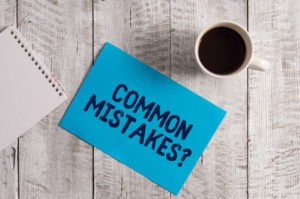What Is a Letter of Instruction?
As a lawyer, I love all of the language in estate planning documents. I can craft the plan however I need so that the client’s goals are met. I can address a variety of situations, avoid pitfalls and anticipate changes in circumstances, taxes and law. I can write clear rules for your loved ones to follow and to benefit from.
I can’t, however, convey your beliefs, wishes, wisdom and thoughts for your loved ones. We can’t always convey the why of your estate plan. As we say at our firm, estate planning is more than money, it is legacy planning. A letter of instruction can help you pass your legacy to your loved ones. See the recent Forbes’ recent article entitled, “Letter Of Instruction: Roadmap To Take This Important Estate Planning Step.” for more.
Some letters of instruction are akin to ethical wills which may provide your loves ones with your wishes and thoughts. Other letters of instruction may serve other purposes. Therefore, you might consider drafting several letters of instruction. One might be a guide for a trusted friend to handle financial and other matters if you have an emergency. A second might be to the person serving as a health care agent who will make medical decisions for you if you can’t do so. A third might be to a trustee of a trust for your grandchild urging them to prioritize spending on education, starting a business and so on.
Mary wrote an excellent article on ethical wills which you can find here for more: https://galligan-law.com/estate-planning-attorneys-recommend-that-clients-consider-writing-an-ethical-will-or-legacy-letter/
It is, however, very important to be careful when writing any letter of instruction to avoid conflicts with estate planning documents. The estate plan has legal effect we don’t want to disturb. Instead, letters of instruction should be worded in a way that make them merely an expression of wishes and information and not a change to your estate planning documents. To that end, you should share a letter of instruction with your estate planning lawyer to ensure the estate plan and letter won’t conflict or lead to a fight in your estate.
Here are some suggested categories you might include in one or all of your letters of instruction.
ICE – In Case of Emergency. A vital purpose of a letter of instruction is to tell someone (e.g., the agent under your power of attorney for financial matters and the agent under your health proxy for medical decision-making) your wishes and critical information. For both your financial and health care ICE letters, you should list the location of the original legal documents.
ICE – In Case of Financial Emergency. For your financial ICE letter, you should indicate where key financial data is maintained and how to access it. In addition, list the bills to be paid and creditor information.
ICE – In Case of Health Care Emergency. For your health care ICE letter, you should provide key health information and indicate where health records are maintained. It is important to add the contact information for healthcare professionals and any particular health challenges. Your health insurance information should also be provided.
Key Family, Advisers, and Other People. Having a list of positions, names and contact information is helpful for everyone to see, so that they know if certain actions they might have to take may be in the purview of someone else. The listing should be by categories that make sense for you. Some of the positions/relationships you might list include the following:
- Professional Advisers, such as an estate planning attorney, CPA, investment consultant and banker
- Family; and
- Trustees of trusts, the executor under your will, and powers of attorney agents
Reference: Forbes (June 18, 2023) “Letter Of Instruction: Roadmap To Take This Important Estate Planning Step”

